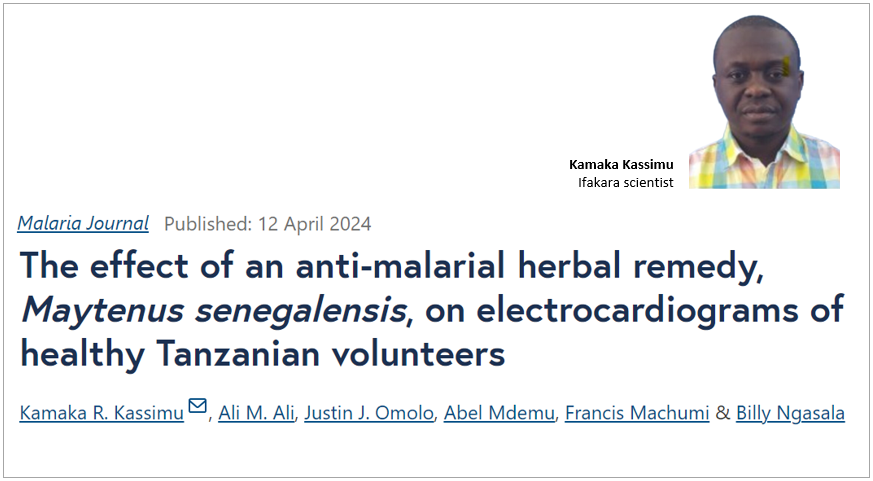
CONFIRMED: Herbal remedy that’s safe alternative malaria treatmen

Maytenus senegalensis, a herbal remedy traditionally used as medicine, has been confirmed as safe and effective for treating malaria; according to a new study. The remedy could also help fight artemisinin-resistant malaria suggest scientists after conducting trials on healthy adults in Tanzania.
The study, published on the Malaria Journal recently, focused on assessing the electrocardiographic effects of the herbal remedy in healthy adult volunteers. While its efficacy against malaria has been demonstrated in previous studies, its impact on heart function in humans hasn't been studied extensively.
What is Maytenus senegalensis?
In the study, the scientists describe the herbal remedy as “one of the medicinal plants belonging to the Celastraceae family”. Also commonly known as Spike Horn, the herbal remedy is a shrub or tree that grows up to 15 m high and is widely distributed in most African countries, as well as Arabia, Afghanistan, and India.
“Recent estimates show that 80% of the African population uses herbal remedies… In Tanzania, M. senegalensis is one of the most important medicinal plants for the treatment of malaria, fever, pain, and chronic diseases. Traditional uses of M. senegalensis have also been reported in other African countries, such as Benin, Ivory Coast, Kenya, Sudan, Zambia, and Zimbabwe,” they added.
Assessing electrocardiographic effects
According to the scientists from Ifakara Health Institute, Muhimbili University of Health and Allied Sciences (MUHAS) and the National Institute for Medical Research (NIMR), the study aimed to fill this gap by assessing the electrocardiographic effects of the herbal remedy in healthy volunteers.
A clinical trial was conducted at the Ifakara’s Bagamoyo Clinical Trial Facility (BCTF) located in Kingani, Bagamoyo, from June to September 2021 involving 12 healthy volunteers aged 18-45 years. The volunteers were administered varying doses of Maytenus senegalensis, and their electrocardiograms (ECGs) were monitored over several days.
Safety confirmed
The scientists found that the herbal remedy did not pose any significant risk to the participants. This suggests that the herbal remedy is safe for the heart and supports its traditional use for treating malaria and other illnesses. It could even be a safer option for malaria treatment compared to some other medicines, particularly in the context of artemisinin-resistant malaria.
“A dose of 800 mg every 8 h for four days of M. senegalensis did not affect the electrocardiographic parameters in healthy volunteers. These findings have broad implications, reaching beyond the potential therapeutic applications of M. senegalensis to its traditional use as an herbal remedy.”
“Across various cultures, M. senegalensis has traditionally treated a range of ailments, including malaria. The results of this study lend support to both its traditional use and its modern therapeutic potential. Furthermore, this study represents a significant step in understanding of the safety profile of M. senegalensis, reaffirming its historical significance and bridging the gap between traditional knowledge and modern scientific inquiry.”
Further research is needed
Despite the success of these findings, the scientists emphasize the need for further investigation. They underscore the need for further research on the herbal remedy, including larger and more diverse populations, to better understand and confirm its safety profile and therapeutic potential.
With resistance to current antimalarial drugs on the rise, the search for effective alternatives has become increasingly urgent. The scientists note that the study’s findings open avenues for the strategic integration of the herbal remedy into malaria treatment regimens as it could be explored as a potential anti-malarial therapy in the pipeline.
Ifakara scientist leads the study
The study was led by Ifakara scientists Kamaka Kassimu and Ali Ali. Additional contributors include Justin Omolo and Abel Mdemu from NIMR, as well as Francis Machumi and Billy Ngasala from MUHAS.
Read the publication here.
